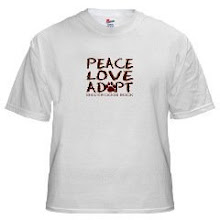By far, one of the most frequently asked questions that one needs to consider before making the important decision about dog ownership, is how much time will you have to be with your dog? Do you work all day? Will your dog be left alone for eight or more hours each day? Does your job require you to travel? If so, who will care for your dog while you're gone? Is there someone home during the time when you are at work, so your dog won't be alone for hours at a time? Do you live close enough to your work that you can come home during the day, perhaps at lunch, to spend some time with your dog?
Dogs are social animals. Spending large amounts of time alone can be difficult for them, causing them anxiety that could lead to inappropriate behavior, such as urinating or defacating in the house, destructive behavior, loss of appetite, restlessness, irritability, even depression.
Imagine for a moment the first time you left home for any length of time when you were a child....whether it was summer camp, a sleep-over at a friend's or cousin's house, or even your first day of school. No doubt, you were inundated with feelings of distress, restlessness, inability to concentrate, irritability, even physical ailments such as a stomach ache.
Your new puppy experiences these same feelings when separated from his "people" for prolonged periods of time.
When your brand new puppy is taken from his mother and siblings to live with you, he experiences his first pains of separation. When he wakes in the middle of the night for the first few nights, he is fearful and confused....where am I? Where is my mother? Where are my littermates?
Fortunately, however, your new puppywill quickly transfer his attachment from his dog family to his new human family. And usually, within a few weeks (sometimes months), your puppy will learn to be seaparated from his people for short periods of time without any undue suffering.
Sometimes, however, this isn't the case. Some dogs, for many reasons, never learn how to cope with separation, and each and every time you leave your dog alone, he is filled with inexplicable anguish. And in today's world, where most everyone is always on the go, if your dog is unable to adjust to being alone, he -- and you --- could be in for a world of agony.
The best way to teach your dog to be alone, is to start early when he is a new puppy; however, if you adopt an older dog, he, too, will benefit from being taught immediately about the inevitable fact of being left alone.
First, give your new puppy a few days to get used to his new environment. Then, once he seems comfortable with you and with his new home, "stage" a calm departure, even if you just leave the house to go outside for a few minutes, and then come right back in. When you come back into the house, casually greet your dog, and then go about your business. Continue this over the next week or so, gradually increasing the amount of time that you are gone, until it's normal for him to know that you may be gone an entire day, but that it's no big deal.....you will return.
Remember, dogs are social animals, and need social interaction. If we want our dog to respond calmly, we need to act calmly. A dog who is gradually made accustomed to being left alone in a calm manner, is less likely to become noisy and destructive when left home alone.
~Lisa Pallardy
_______________________--
Read more articles on dog care and training at http://www.Barktalk.com
Subscribe to:
Post Comments (Atom)











i have tried this method and my dog still has a time issue she is 5 months going on six and she will poop and pee and rip up her pee pad. i take her every where i go except work and this is when is destructive. do you have any ideas i can do. thanks
ReplyDelete